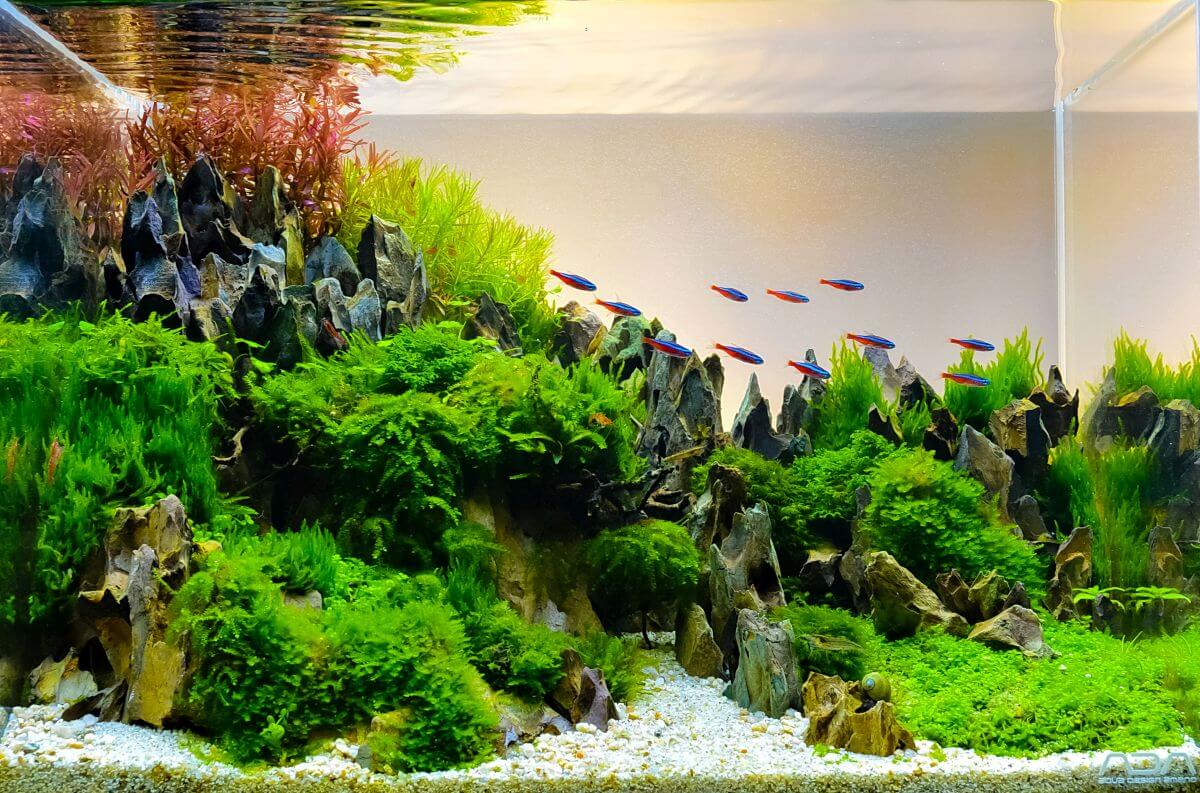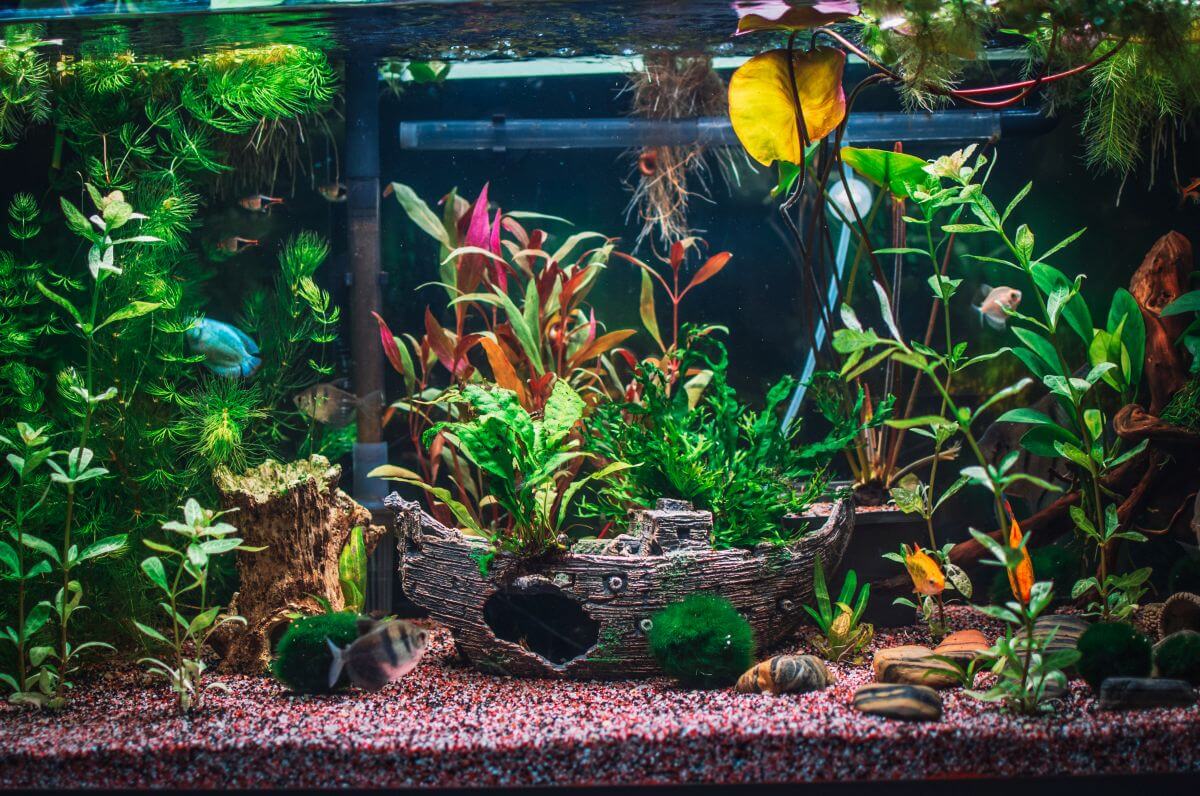the essentials in brief
NPK fertilizer is suitable for supplying plants with the essential nutrients nitrogen, phosphorus and potassium. You can read more about the function here...
Plants such as tomatoes, corn, cabbage and lawns need nitrogen fertilizers for healthy growth. Read more here...
The shelf life of NPK fertilizer depends on storage, but it typically retains its potency for several years.
NPK fertilizer, consisting of the main nutrients nitrogen, phosphorus and potassium, play an important role in supplying plants with the nutrients they need for healthy growth. These fertilizers are used in various application areas such as aquaristics, horticulture, agriculture and lawn care. Through the targeted addition of NPK fertilizers, plants can be optimally supplied with nutrients to promote their development, flowering and fruit formation.
In this article you will receive information about the function of NPK fertilizer, about its use in the aquarium and you will find out what else the fertilizer can be used for.
The function of NPK fertilizer in aquariums

NPK (nitrogen-phosphorus-potassium) fertilizers play an important role in aquariums, especially in the Supplying aquatic plants with the nutrients they need for healthy growth. Each of these nutrients performs a specific function in the aquarium ecosystem.
Nitrogen (N): Nitrogen is an essential component of proteins and chlorophyll, making it an important nutrient for plant growth. In the aquarium, nitrogen fertilizer supports the aquatic plants in building up proteins and strengthening their cell structure. This causes them to be better able to photosynthesize and nourish. Nitrogen promotes leaf and stem growth, resulting in dense, healthy plant growth.
Phosphorus (P): Phosphorus is an essential component of adenosine triphosphate (ATP), an important energy store in cells. In the aquarium, phosphorus plays a crucial role in promoting root development and cell regeneration in aquatic plants. The addition of phosphorus fertilizer stimulates the production of ATP, which leads to an increased supply of energy for plant growth.
Potassium (K): Potassium is a macronutrient that is essential for various metabolic processes in plants. In aquaristics, potassium regulates the movement of water in the plant cells and improves nutrient uptake. It also strengthens cell walls, increases plant disease resistance and improves leaf coloration.
In summary, it can be said that NPK fertilizers are essential for the nutrient supply of aquarium plants. The targeted addition of nitrogen, phosphorus and potassium meets the growth needs of the plants, promotes healthy, attractive plant growth and supports the ecological balance in the aquarium.
Additional information: In addition to NPK fertilizer, aquarium plants also need carbon dioxide (CO2), light and trace elements for healthy growth.
The application in the aquarium
When using NPK fertilizers in aquariums, there are a few important points to consider to ensure optimal and safe use. It's important to follow the manufacturer's dosage instructions closely to avoid overdosing or underdosing. One Overdose can cause nutrients to build up in the water, which can lead to an imbalance in the aquarium. Conversely, one can Underdosing lead to nutrient deficiencies in aquatic plants. Therefore, it is important to always stick to the recommended dosage.
Equally important is the regular checking of the water valuesto ensure the aquarium stays in balance. pH, water hardness and nitrate levels should be checked regularly as over-concentration of nutrients can alter the chemical profile of the water. If necessary, the dosage of the NPK fertilizer should be adjusted to maintain the optimal level of nutrients in the water.
When using NPK fertilizers for the first time or when switching to a new fertilizer, it is advisable start with a lower dosage and then gradually increase it. This gives the aquatic plants time to adapt to the new nutrient conditions and reduces the risk of overgrowth or algal blooms.
Although NPK fertilizers are the basic supply of macronutrients for aquatic plants, they can also be used as needed other fertilizers may be required e.g. B. Micronutrients or iron supplements to compensate for specific nutrient deficiencies. In order to compensate for specific nutrient deficiencies, micronutrients or iron supplements, for example, may be necessary. It is therefore advisable to find out about the specific needs of your aquatic plants and, if necessary, to combine the NPK fertilizer with other suitable fertilizers to ensure a balanced nutrient profile.
Note: Regular water changes are important, along with the right dosage and combination of fertilizers. Changing the water will help remove excess nutrients and help maintain balance in the aquarium. Regular water changes also dilute other potential problems such as pollutants or metabolites that can affect aquatic plant growth.

What else can it be used for?
NPK fertilizers are not only used in aquariums, but also in many other areas of agriculture and horticulture. Here are some more uses of NPK fertilizer:
- Horticulture: NPK fertilizer is an essential ingredient for the healthy growth of plants in the garden. It provides the plants with the nutrients they need for their development, flowering and fruiting. Whether in the vegetable, flower or ornamental plant garden - NPK fertilizers are used to create optimal growth conditions.
- Agriculture: In agricultural production, NPK fertilizers are of great importance. It is used to enrich the soil with nutrients needed for growing crops such as grain, corn, soybeans, fruit trees and other crops. NPK fertilizers help to increase crop yields and improve the quality of agricultural products.
- Lawn care: NPK fertilizers play an important role in the maintenance of lawns. It promotes grass growth, improves grass density and provides a healthy and green appearance. The use of NPK fertilizers makes it possible to provide the lawn with the necessary nutrients and make it more resistant to environmental stresses such as drought, heat or disease.
- Nurseries and ornamental plants: NPK fertilizers are also used in nurseries and when growing ornamental plants. It promotes the healthy growth of seedlings, young plants and potted plants. The targeted addition of nutrients makes the plants stronger, more resistant and more attractive.
- Hydroponics and greenhouses: In hydroponic systems, where plants grow without soil in a nutrient solution, as well as in greenhouses, NPK fertilizers are used to ensure optimal nutrient supply to the plants. In these controlled environments, fertilization can be precisely tailored to the needs of the plants to create optimal growth conditions.
To sum up, NPK fertilizers are widely used in various fields such as horticulture, agriculture, lawn care, nursery, ornamental crops, hydroponics and greenhouse. Through the targeted supply of nutrients, they help to promote the growth and health of plants and to achieve an optimal harvest or an attractive design of gardens and landscapes.

For a healthy growth
In summary, it can be said that NPK fertilizers play an important role in the supply of nutrients to plants, whether in aquaristics, horticulture or agriculture. Targeted additions of nitrogen, phosphorus and potassium meet the growth needs of the plants and ensure healthy, vigorous plant growth.
In addition to NPK fertilizer, aquarium plants also need carbon dioxide, light and trace elements in order to be able to grow optimally. The correct application and dosage of NPK fertilizers and the consideration of other growth factors are decisive for balanced and healthy plant growth.



